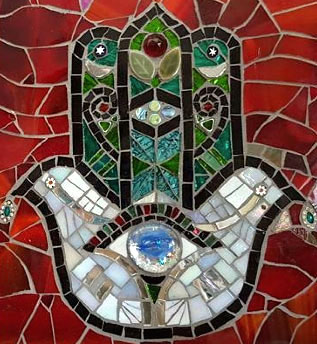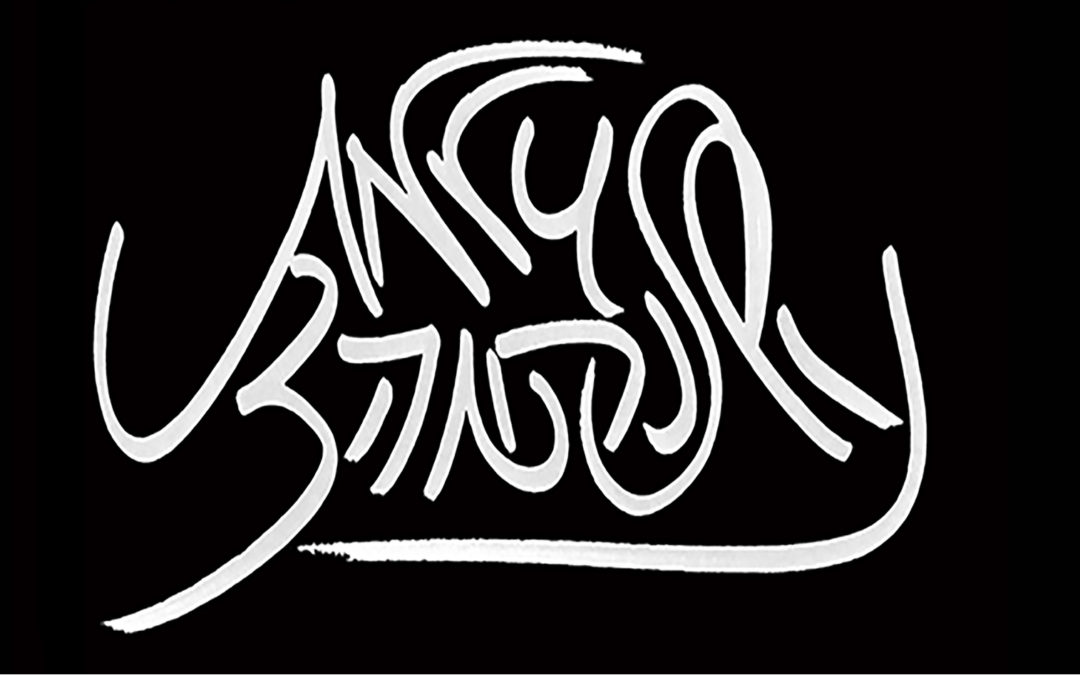Police brutality and mass incarceration are forms of institutionalized state violence and control that disproportionately impact communities of color across political boundaries and imposed borders. The following is part of a series exploring the way that marginalized communities separated by Israel’s ethno-religious, military, and border regimes experience oppression through the police and prison system.
The summer of 2018 saw widespread demonstrations by Palestinian citizens of Israel, in response to Israeli military violence against the Great March of Return protests in Gaza, and a host of other issues facing local communities. Palestinian citizens of Israel account for a little over 20% of the country’s population and face systematic discrimination and exclusion under over 65 laws, including the Nation State Law, which officially guarantees national rights only to Jewish citizens of Israel. They are physically and politically separated from many of their Palestinian peers by the occupation, and often targeted as a potential fifth column by right wing politicans.
Following a protest in solidarity with Gaza, Jafar Farah, Director of the Mossawa Center in Haifa, was arrested by Israeli police and beaten in custody, suffering a broken leg. That summer, Unruly co-editor Rebecca Pierce sat down with Farah to discuss the reality facing Palestinian citizens of Israel who contend with police violence, systematic discrimination, anti-Arab incitement, and isolation from other Palestinian communities. We also discuss what Farah sees as the need for shared struggle under a militarized police regime that targets both Palestinian and marginalized Jewish Israeli communities while simultaneously pitting them against each other.
RP: Can you introduce yourself and your organization?
JF: I’m Jafar Farah, I’m the Director of the Mossawa Center, it’s the advocacy center for the Palestinian community inside the Green Line, inside Israel. And we do social-economic development, we do political representation on the whole issue of political involvement of the Palestinian community, legal status of the Palestinian community, legislation, and some litigation. Also community organizing and international advocacy for the Palestinian community in Israel.
RP: Why is it necessary for the Palestinian community in Israel to organize itself in this way?
JF: I’m not sure that it’s the perfect way to do it, but we try to find institutions that can react to the reality of the Palestinian community. We are a minority inside the Green Line. If we talk about a two state solution, the Palestinian community inside the Green Line is actually isolated from the other Palestinians. But in any case there is no two state solution, there is some kind of occupation and three at least, if not four, different legal systems: one for the Jewish community, one for the Arab community, one for Jerusalem, one for the West Bank and one for Gaza. Actually in the history of the Palestinian community in Israel, we have also been under a military regime. Today we are called citizens of the State of Israel, but of course we are not Jewish citizens of the State of Israel.
So in that sense if we talk about the two state solution, we need to take care of the future and the reality of the Palestinian community inside Israel, and to represent the voice of the Palestinian community, and to protect human rights issues and economic development for the Palestinian community in Israel. [This is] with and without any connection to other Palestinians and the bigger struggle, which is to end the tragedy of being refugees and being under occupation and of course being discriminated against and controlled by one group.
RP: What happened when you tried to show solidarity with the Gaza protests as Palestinian citizens of Israel?
JF: In the last Gaza demonstrations of course the Palestinian community inside Israel felt that we should show solidarity and we should also stand with our brothers and sisters in the Gaza Strip. And in Haifa especially the police forces and the government made the decision to oppress the demonstrations and to use serious violence. It wasn’t a big demonstration, 400-500 people. I was injured in the police station. So almost everybody that had been arrested, 21 people, almost everyone had been beaten in the police station. And my leg was broken.
I can’t say it was massive use of violence, but it was brutal treatment that a peaceful demonstration was dealt by the Haifa police station. And I don’t think that it was local. It was a message to the Palestinian community that “you can try to play with the so-called only democracy in the Middle East, you can talk about certain issues, but you can’t talk about occupation.” We should pay taxes to finance the occupation, maybe to send some of our kids to be soldiers in the Israeli army, to be part of the occupation, but not to oppose the occupation. And that was the message of not only the police station in Haifa, but a message two weeks before at the opening of the American Embassy in Jerusalem, where the same violence had been used against elected people. Knesset Members that have parliamentary immunity are being treated in the same way.
RP: What kind of work are you doing with issues of police brutality in Israel?
JF: We are dealing with 46 cases of killings of Arab citizens since October 2000 until today by police officers, and immunity that these police officers are getting from the Ministry of Justice and the unit for investigating police officers. Unfortunately we have been involved in the past with documenting bodies of victims of police violence. You know Aayar Abdullah? He had three kids, from East Jerusalem, near Abu Ghosh. He was shot and killed, and from 2015 until now we and his family have been trying to get any kind of truth, any kind of information about why he was shot and killed. We are now in a legal process with the Ministry of Justice about this case. So we have worse cases than just use of violence during demonstrations. We have the killing of Arab citizens during the October [2000] demonstrations, 13 people were shot and killed, and no police officer was convicted in these cases. And when you look at oppression inside Israel, you have the worst cases of killing citizens and you have oppression in the way that it happened in Haifa.
RP: How does policing connect to discrimination for Palestinian citizens of Israel?
JF: Look, there is over-policing from the Jewish community of Arab Citizens, and there is less, very minimum policing in the Arab community. You know there is huge violence inside the Arab community, there is a huge amount of illegal weapons inside the Arab community. Most of it is coming from the Israeli army itself, smuggling weapons to the community and these weapons are used in internal conflicts. We lost during the last 15 years almost 2,180 Palestinian citizens as a result of internal violence. In 96% of the cases the police are failing to find who was involved in these killings of Arab citizens. So when you go to Arab villages and cities you feel that there is a lack of safety and security. People don’t feel safe in Um Al Fahm, people don’t feel safe in Nazareth. So in this sense people are moving out from Arab villages and cities and moving to Haifa because they feel that it’s not secure or they don’t feel secure even with their kids.
So the discrimination and lack of policing in Arab cities, is moving out Arab citizens from our villages and cities to places like Haifa or even [Jewish development towns] Karmiel or Nazeret Ilit, because there you have overpolicing. [The police] look at you and they follow up but you say, “I’m willing to [deal with] this but I want to feel safe.” Because the worst is like a small civil war that we have inside the Arab community. People don’t feel safe in their villages and they don’t get any kind of normal services. Go to Sakhnin as a city and compare it to the services of Karmiel nearby, you’ll see that there is a huge gap. And many people in Sakhnin just leave Sakhnin and they move to Karmiel because they feel; 1) it’s more secure [in Karmiel], and 2) there are much better services for the taxes that you pay.
RP: How else are you responding to police violence in Israel?
JF: We try to outreach to the Jewish community, as part of this liberation mentality that we are promoting as an organization. We try to build solidarity with different communities. Part of the solidarity with me [after my arrest] during the last month was the result of the fact that we are also showing solidarity with the Ethiopian community, with the Russian community, with the Haredi community. In Israel there is a politics of separation, a politics of hate speech, a politics of occupation. What we need to promote as Palestinians is a politics of liberation, a politics of solidarity between communities, a politics of shared future. In the end, if it will be a one state or two state solution, we will not accept our second class citizenship.
If you look in different communities inside Israel, you know I told you 46 Arab citizens have been shot and killed, but I will tell you also that [recently] three Ethiopian Jews were shot by police officers in Israel. Racism in Israel is against the Palestinians, but as it happened in Europe you start with the Jews, you start with the Palestinians, but then you see the Ethiopian Jew and you discriminate against him, you act against him in a racist way, and the Haredi, and the African immigrant. If you took all these minorities in Israel, you discover that most of these communities, they suffer themselves from systematic discrimination. Even the Mizrahi community in Israel is suffering from systematic discrimination.
But the hate speech is actually feeding them to hate the Arabs. To occupy the Palestinians. So in this sense you have a system in Israel, from the education system to the army, that its goal is actually to separate communities, to prevent any kind of human solidarity between communities. And we as a Palestinian organization we have a challenge: on one side to take care of our community, but on the other side to understand that this policy of separation and segregation and racism is a policy that has a lot of support when it comes to practices against us, but in different ways is also something that is practiced against different communities. It’s very important that we show it also to the different Jewish communities that at the end of the day, the only future of the Jews and Palestinians of the region is peace, is solidarity between communities, is social justice. We have to mainstream this agenda in contrast to the agenda of settlers, settlements, walls, and separation.
The whole idea of a separation wall is an idea of segregation of the Jewish people from the Middle East, and it’s racist. It’s not only to separate the Palestinians in Gaza and the West Bank with a wall, it’s not a security wall. This is a mental-linguistic wall around Jewish people. We have a responsibility in the end of the day to destroy these walls and open a new stage of solidarity and peaceful relationships between different communities in this region.

